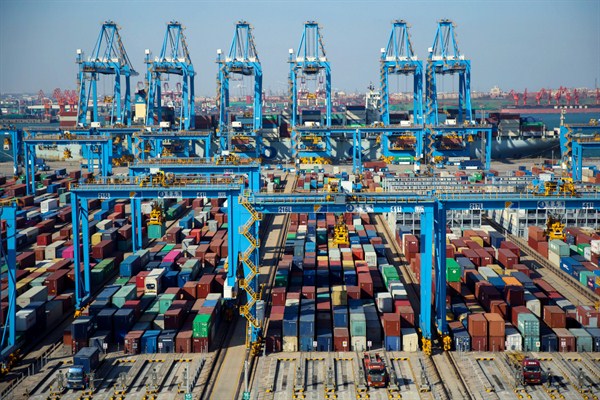It was another roller coaster ride in Washington last week—and that was before the Judiciary Committee of the House of Representatives voted Friday morning to approve two articles of impeachment against President Donald Trump. Despite impeachment getting closer to a full vote on the House floor, Speaker Nancy Pelosi announced early in the week that the House would also vote on Trump’s top trade priority: replacing the North American Free Trade Agreement with the renegotiated U.S.-Mexico-Canada Agreement, or USMCA. By the end of the week, Washington and Beijing had filled in enough details on the “phase-one” deal to avoid Sunday’s threatened tariffs on $160 billion in Chinese exports of laptops, smartphones and other consumer goods. Meanwhile, across the Atlantic, British voters gave Prime Minister Boris Johnson an overwhelming mandate to “get Brexit done,” as his simple campaign slogan put it.
While 2019 was bumpy—as predicted—these events could all pave the way for a smoother 2020, at least on trade. There was a hiccup over the weekend about the new labor enforcement mechanism of the USMCA, but that is unlikely to derail the deal. There is no longer any uncertainty about Brexit happening next month, and there is at least a cease-fire with China.
Of course, Trump can always upend the best-laid plans with a tweet, and Johnson still has major challenges in negotiating the United Kingdom’s new trade relationship with the European Union, its largest trading partner.There are also worrying signs at the World Trade Organization, given the Trump administration’s refusal to compromise on appointing new members to its Appellate Body, which hears appeals in trade disputes between WTO members. If it doesn’t relent, the WTO’s entire system for settling trade disputes could grind to a halt. But it still seems likely that the coming year will provide some relief from the chaos and uncertainty of 2019 when it comes to economic and trade policy.

